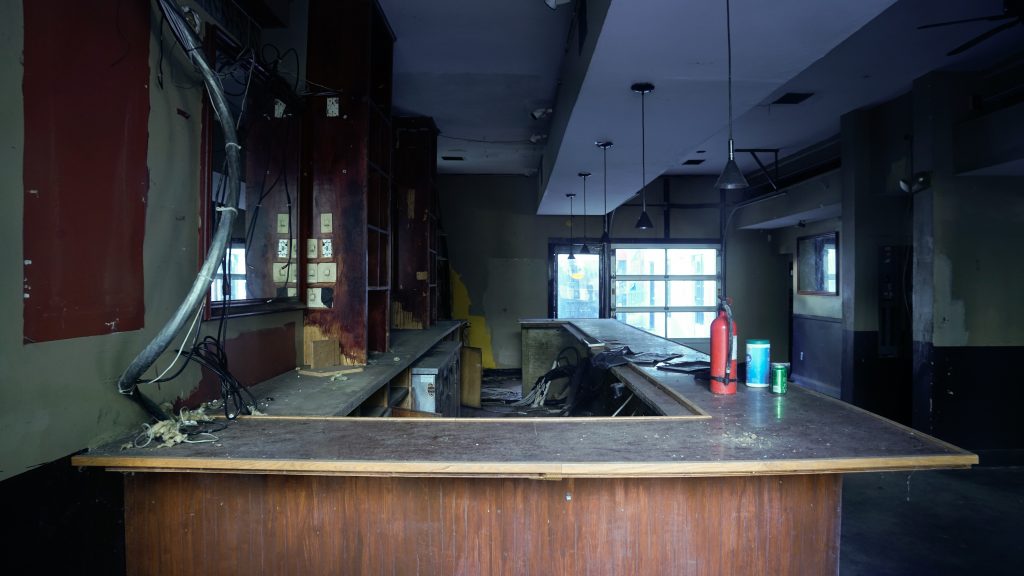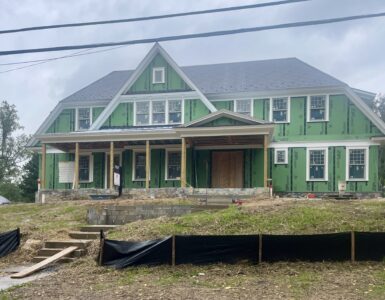Downtown Bethesda is growing more vacant, with Modell’s Sporting Goods, Washington Sports Club, Gartenhaus, the Montgomery County Thrift Shop, the bar Villain and Saint, and multiple law offices all closed and empty.

Walking down Wisconsin Avenue, downtown doesn’t seem like a thriving metropolitan area. So many “For Lease” signs hang in windows and on buildings that it’s hard to go more than a block without seeing one. As you look into windows over leasing advertisements, you see large empty caverns of commercial space.

“Right now, with what’s going on with the COVID climate, the retail sector has taken a little bit of a punch in the nose, or a punch in the gut, so to speak, so you know we’re just going to have to be patient,” said Matt O’Connell, a Vice President with Donohoe Real Estate. They have interest from businesses in leasing one of their key locations along Wisconsin Avenue, but they’re trying to be particular in who fills the location. One of the companies they’re pursuing has put off finalizing a location for their business until after the New Year.
Businesses that have moved or closed downtown left behind vestiges of what they once sold. There are empty racks at Modell’s all pushed to the walls; promotional signs still attached. Villain and Saint’s outdoor seating is slowly succumbing to the elements.


Shopfront and commercial space are widely available in the area though, over 350,000 square feet of space is currently empty. That’s the size of a large shopping mall and is all within five blocks of the Bethesda Metro station. Those available spaces are just from CBRE, Donohoe Real Estate, and Brookfield Properties, the main commercial real estate competitors downtown.
The large sidewalks of downtown Bethesda have so few people that pedestrians seem to shrink against the towering building spaces. The entrances to the metro rail station lack the flow of pedestrians and fade into the background.

The pandemic spending trends haven’t helped businesses, with sharp drops and jumps from month-to-month, according to the Bureau of Economic Analysis. Businesses are hard pressed to find consistent customers or other means to sustain their cash flow.
John Seleznev from Beer and Wine Co. saw just how hard the economy was impacted.
“I think it’s a shame. I feel like there definitely needs to be more relief in place. Right now we don’t really have a system that helps those people,” he said. “It’s unfortunate, but you know, there’s not much more you can do at this point.”

That idea of relief being hard to find is exactly what Judy Stephenson works to help fix. “It’s definitely a tough time for businesses, and you know, I have a feeling it’s going to be challenging for awhile,” she said. She’s a small business advisor for the Montgomery County Chamber of Commerce and shares many of the frustrations as business owners in dealing with the economic impact of the pandemic.
The challenge doesn’t seem to be the resources, but rather communication. Stephenson said it’s “an ongoing frustration” that there isn’t a main list of businesses or a single point they can go to. “The other big issue we have is communicating with businesses communities, because we don’t have a comprehensive list of businesses,” she said.
“First of all, any numbers are going to be lagging.” she said. Economic numbers, especially at a local level, are hard to pin down. Stephenson pointed out that while storefront retailers have to register with Montgomery County Circuit Court, closure information could be behind by as much as a year.
There are also different rules for different types of business, with law firms or consulting businesses never going through the court, she said. These differences create frustration when local and county support, like the chambers of commerce, try to help.
Montgomery County offers different programs to help businesses, many of them grants instead of loans, made available to them to help lessen the financial burden. Their Chamber of Commerce also has loan forgiveness workshops and educational information to help businesses recover and navigate the bureaucracy after using federal resources.
It’s a delicate balance though. Stephenson pointed out that requiring businesses to register for purely informational purposes isn’t what the county wants to do, creating arbitrary hoops for entrepreneurs. However, without a main list of information, it’s hard to track the health of a local business economy and reach out to those that need assistance.














Add comment